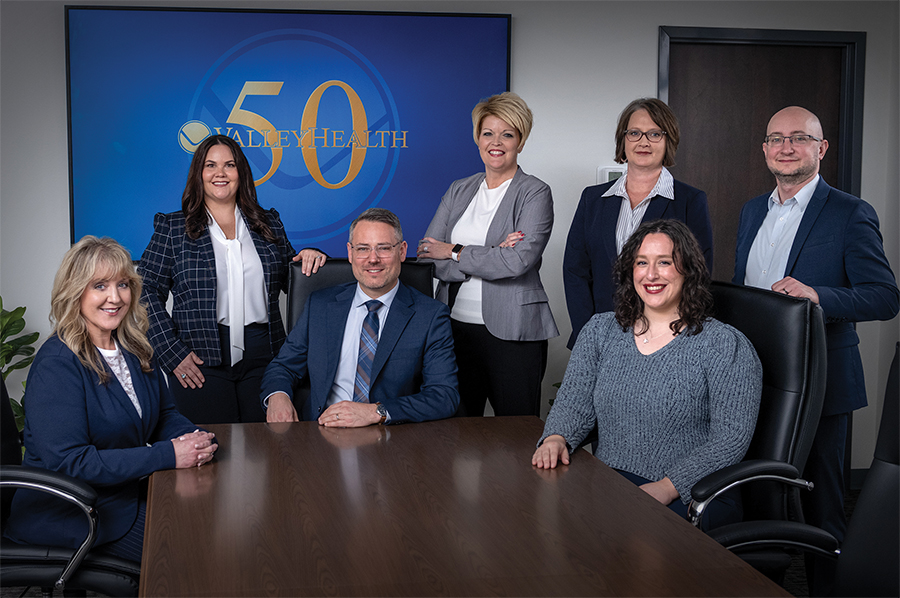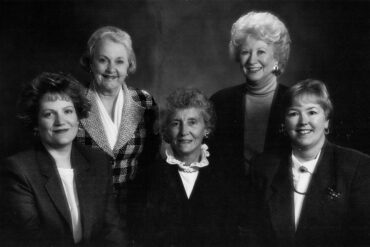Valley Health has grown from a small rural health center to a regional leader with 60 locations across three states.
By Amanda Larch Hinchman
HQ 129 Spring 2025
Celebrating its golden anniversary this year, Valley Health continues to grow to serve more patients and its community. Valley Health was established in 1975, its formation coinciding with the region’s emergence as a health care leader. Beginning as a small health center with three initial locations, the organization set out to address gaps in access to primary care in rural settings.
“Looking back at our humble beginning and watching Valley Health evolve to become a health care leader has really been remarkable,” noted Valley Health President and CEO Mathew Weimer, MD.
In the last decade alone, Valley Health has nearly tripled its number of employees, increasing from 331 to nearly 1,000 total staff members throughout its 60 sites in West Virginia and Ohio — and, soon, Kentucky.
Valley Health’s first location in Kentucky, an optometry office, will be the first of its kind for the organization in the Bluegrass State and will be named Valley Health Louisa.
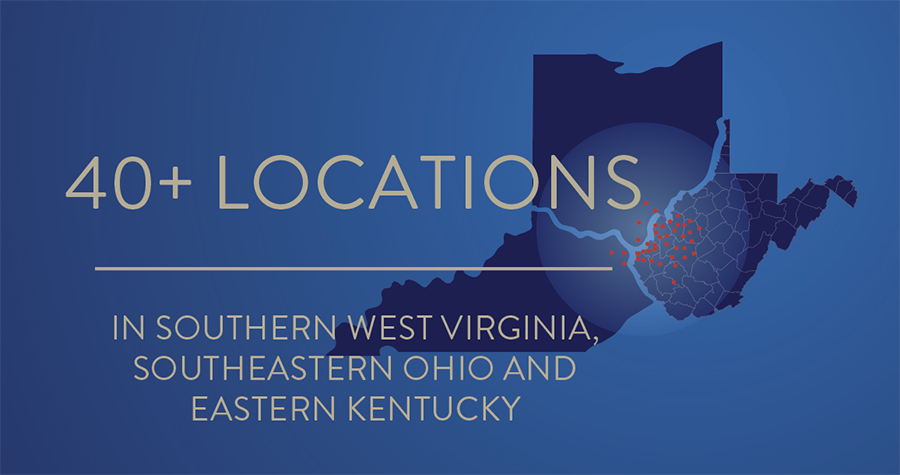
“We’ve been really centered in Huntington and moving along the I-64 corridor eastward,” said Weimer. “We have a large presence across southern West Virginia and offices in Lawrence County, Ohio. Now, we have our location in Louisa right across the river from our Fort Gay office.”
Additionally, the East Pea Ridge business office and women’s health center will be expanding into the adjacent former Big Lots space. In that expansion, which will double its square footage, Valley Health will add a geriatric center with primary care, cardiology and behavioral health.
“It’s going to be pretty remarkable, and it’s the biggest project we have in front of us,” said Weimer. “It’s going to be really good for the Pea Ridge Plaza, too. It will create more vibrancy for this part of Huntington, and it’s going to be a great value-add for the patients and community here.”
Throughout its 60 locations, Valley Health offers primary care, behavioral health, dental care, pharmacy services and more. Its larger health centers integrate multiple specialties under one roof to improve patient outcomes and allow providers to coordinate care.
“A patient ideally would be able to access multiple health care providers, perhaps even get an X-ray or an ultrasound, all in the same day or the same week,” explained Weimer. “This makes it convenient for patients and ensures the providers in those clinical areas are integrated.”
The organization’s patient-centered mission includes increasing quality, controlling costs and addressing disparities in the health care environment due to race, ethnicity, gender and social determinants of health.

“Looking back to our origins, the mission is to serve the underserved,” Weimer said. “Every patient deserves the same quality of care; there should be no discrepancies or disparities between people for any reason. Our job here at Valley Health is to level the playing field when it comes to access to health care, and that’s no small task.”
Valley Health’s success is based in large part on the culture it has developed and is continuing to fine-tune, Weimer said.
“Health care is very challenging, especially for physicians and other providers,” he explained. “The work we do can be very heavy emotionally. It’s challenging work, but it’s also very rewarding. We try to make sure the experience of our staff and providers is the best it can be.”
In its 50 years, Valley Health has invested in the most modern tools in the health care industry. A recent example is the organization’s electronic health record system, called Epic, which Weimer described as the best in its class.
“People in the general public don’t realize this, but for an independent, nonprofit community health center like Valley Health to invest in this type of technology is almost unheard of,” he said. “Valley has been on the cutting edge of health information technology.”
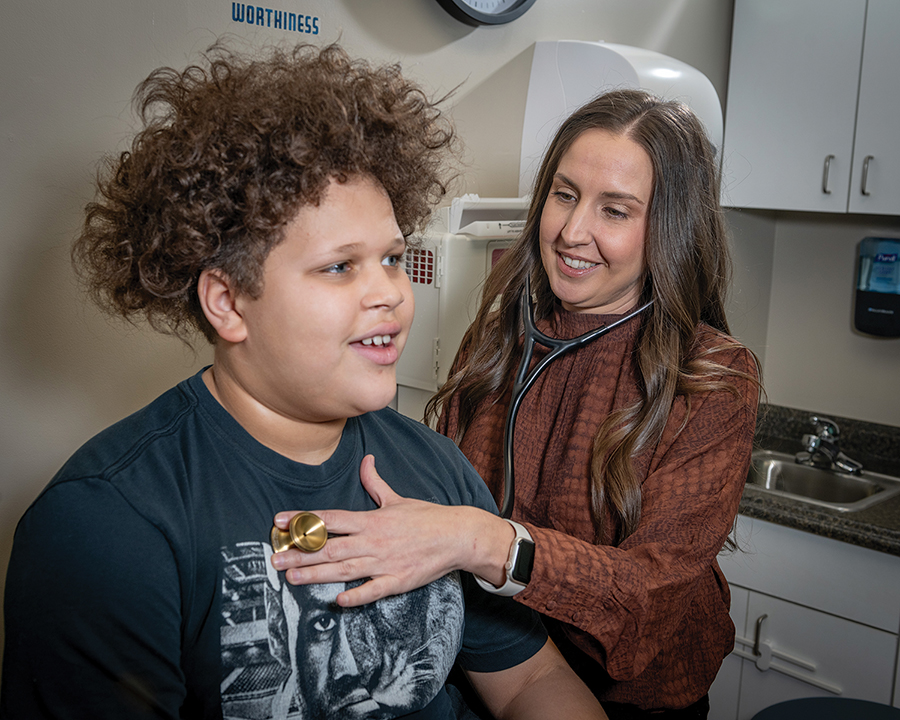
Weimer has been with Valley Health since 2011, practicing as a primary care physician at the Milton site. During a recent 50th-anniversary kickoff event, Weimer asked Valley Health leaders how many were currently living in or were originally from the communities they served. He said when the majority in attendance raised their hands, it was both heartwarming and powerful.
“These are often small rural towns in the Tri-State, and with that comes a certain inherent sense of responsibility when you’re from that community,” he explained. “The presence of these types of neighborhood health centers has led to a strong level of trust between the doctor and the patient. I think it’s an important part of our success.”
Valley Health’s commitment to the communities it serves is reflected in its board of directors. Board chair Paulette Mabry, who has served for eight years, said board members play an active role, often serving on committees dedicated to community outreach. Valley Health supports communities through academic scholarships, health fairs and partnerships with other medical organizations.
“This is a very active and engaged board,” said Mabry. “We are constantly growing and providing health services in communities that are needed. We like to see people helped.”
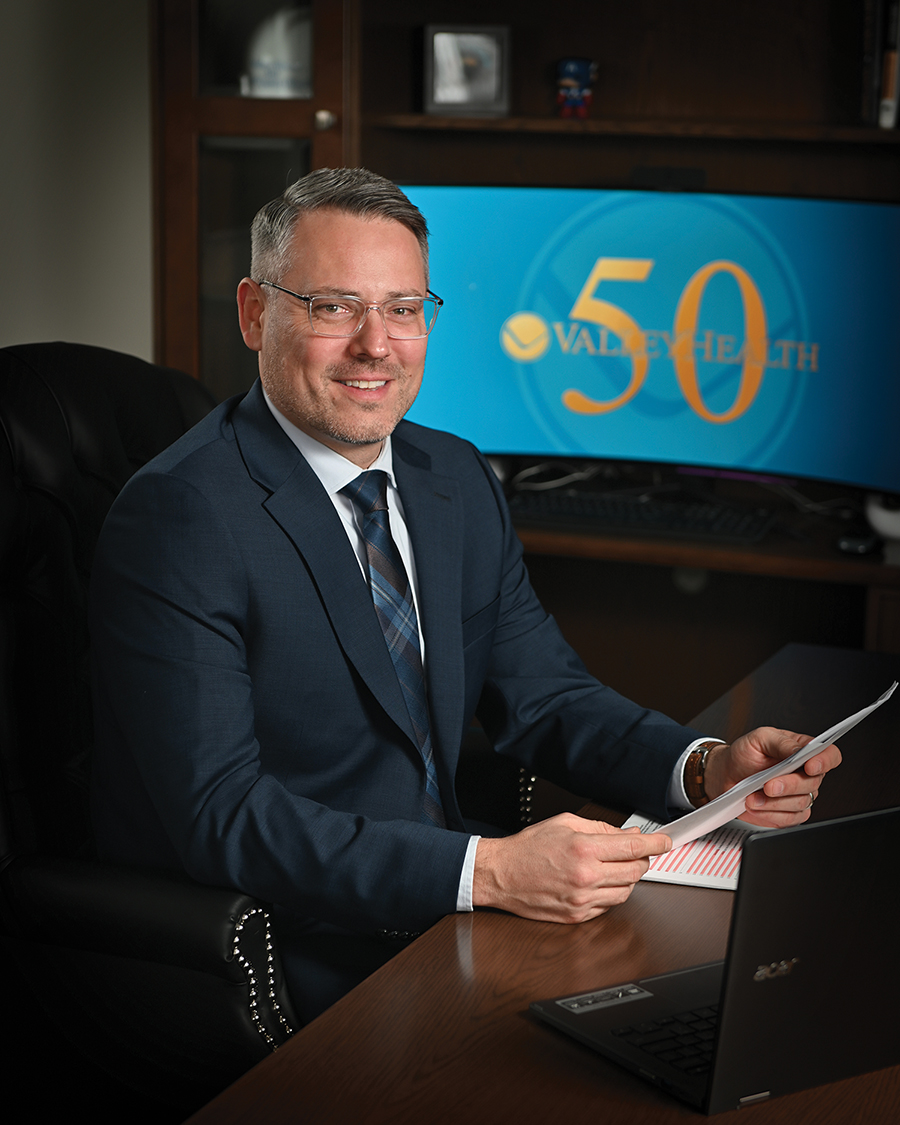
A prime example of Valley Health’s growth and continued dedication can be found in Dan Brody, DMD. When he joined Valley Health in 1984, he split his time each week between the organization’s three dental sites in Fort Gay, Harts and Cedar Grove. Brody began at Valley Health with just one dental assistant and no hygienists. Now, there are eight dental sites with 15 dentists, 17 hygienists and 33 dental assistants. Valley Health offers comprehensive dentistry, including implants, fillings, crowns, bridges, removable prosthodontics and more, in addition to oral surgery services.
Looking to Valley Health’s future, Brody said he hopes the organization continues to grow and offer even more services.
“I’d like to see us continue to establish preventative programs, because we can’t drill and fill ourselves out of dental disease in Appalachia,” he said. “You’re not truly healthy without good oral health.”
Brody left Fort Gay with plans to retire but, citing the iconic line from The Godfather, said Valley Health pulled him back in. He’s been at the Westmoreland site for nearly a decade, though he plans to finally retire this August after 41 years of service. Considering Valley Health’s milestone anniversary, Brody has been involved for 80% of the organization’s lifetime.
“Basically, I’ve devoted my whole life to Valley Health,” he said. “I have been so proud to be part of Valley for 41 years. I always tell folks Valley Health is not this big organization — it’s people. I’m Valley Health, and that’s how I feel about my colleagues.”

